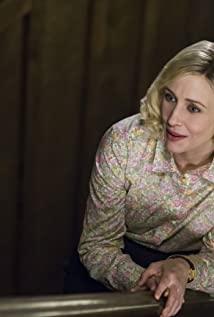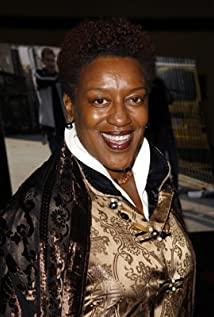I like the thrilling and suspenseful atmosphere created in "The Orphan" very much, and I am firmly drawn by the emotions in the film when watching the movie. After watching the movie, I wanted to analyze where the pressure inside came from.
lens
When the couple came to the orphanage, the first shot was given to Esther. A subjective shot of Esther spying outside.
There are so many scenes in this shot that reflect Astor’s inner desire for control—she wants to monitor everything.
Even in the sex between husband and wife, Esther will appear in the corner of the camera, which is creepy.
Because, it brings to mind predators.
Esther is like a predator in the animal world - hiding in the dark, peeping at prey, waiting for an opportunity.
And outside of the camera, we naturally feel uncomfortable.
In addition to subjective shots, there are other characters who observe Astor.
For example, when the couple were talking at the dinner table, the wife kept looking at Esther's reaction, and Esther looked back, intentionally or unintentionally.
However, none of the above is as unpleasant as Esther staring straight at you.
sound
In the playground scene, the little girl who bullied Esther wanted to slide down the slide. At this time, the movie amplified the sound part: the sound of the wheels turning, the sound of children laughing.
Such a small sound, we must not be able to hear it at ordinary times, and it is very interesting that the film deliberately amplifies the sound.
When will we hear such a small voice?
- When we are highly concentrated and highly stressed.
- When we are ready to deal with predators.
The little trick of the voice makes this ordinary thing seem very weird, and the little girl also encountered a few surprises - we can stand on the position of the "victim" from this scene and experience the effects of Esther. of fear.
You know she's here, but you don't know where she'll come out.
Information asymmetry
Asymmetric information makes Esther appear powerful.
When picking fruit in the mall, Esther took advantage of her sister's ability to read lip language to get information about the other party.
Before her mother left, Esther found her mother's diary and understood the sad past that her mother had been hiding.
At home, Esther played Tchaikovsky's piano pieces, and even his mother was surprised by her playing. Yes, she's amazing, a high-IQ character in this movie, and she knows everyone else like the back of her hand. But in the first part of the movie, we don't know anything about her.
--who is she?
Perhaps the unknown is more frightening.
Violate
The first is the violation of clothing. A "little girl" living in the 21st century likes to wear clothes from the 1970s and 1980s.
Then there's the sophistication that doesn't match her age, swearing, smashing birds, killing nuns, and she seems to be familiar with it all.
As well as her attitude towards her parents, and her subsequent makeup, all are full of disobedience.
Because of the violation, it feels weird, and then I fear the little girl: she is not like us.
help
Esther, who appeared as the villain, had a lot of help from the beginning.
She played with people's hearts, drawing her brother and sister to her side, followed by a psychiatrist and father, and finally isolated her mother.
Indeed, the poorest person in the whole film is the mother, whose intuition is terrifying, but no one believes her.
Most of the narrative in the film focuses on the mother, so we put her in the protagonist.
But the protagonist is gradually framed and isolated by the villain, the villain is arrogant, and gets most of the help, and it is these help that defeat the mother.
The protagonist is cornered, helpless, and loses the trust of his family, who are in the hands of the devil.
We naturally feel hopeless and oppressed.
The oppression of "The Orphan" is probably created in these aspects. I like the series of feelings that the movie brings to me, and it is really nervous to hold my breath.
View more about Orphan reviews











